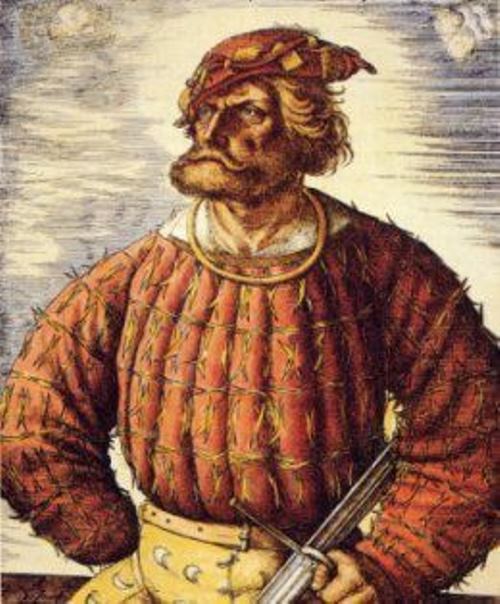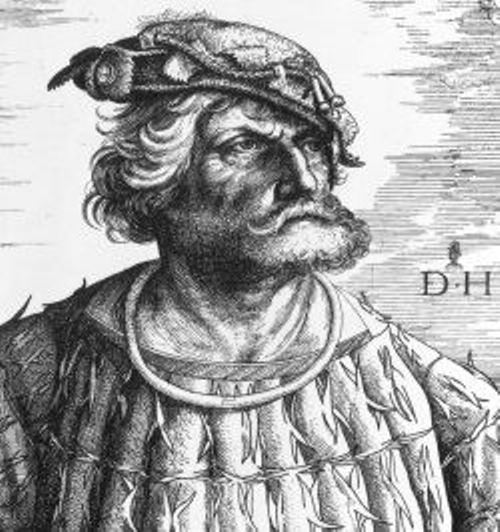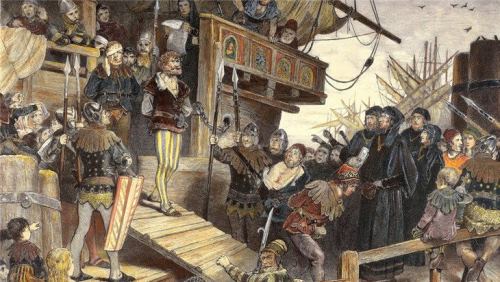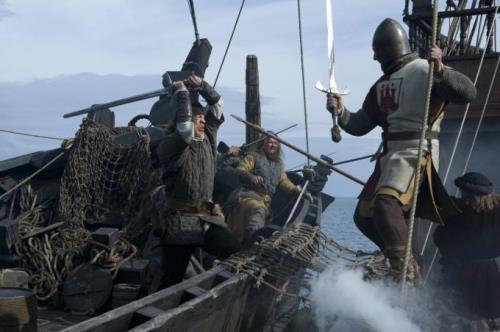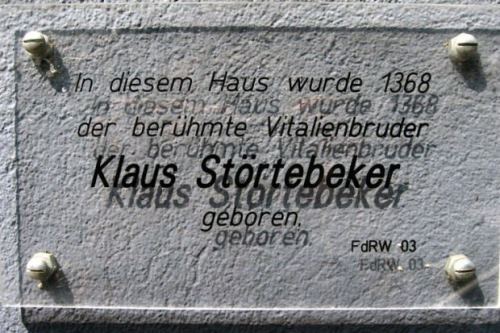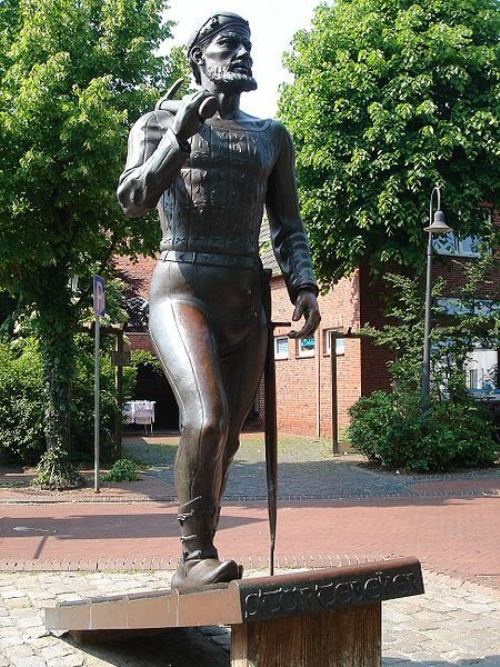Klaus Stortebeker – Northern Seas pirate
Klaus Stortebeker was a German pirate at the end of the XIV century. Songs about him were sung in the taverns of the port cities of Germany, centuries after his death. Even today, a musical festival dedicated to his memory is held on the island of Rugen. Störtebeker was known as a kind of German Robin Hood. And some researchers from Germany are even convinced that he served as the prototype of the legendary English forest robber.
Despite the fact that the life and work of Klaus Störtebeker, as well as his death in Hamburg are described in sufficient detail in various medieval sources, his birthplace and origin remain unknown. Up to 20 cities and towns are still fighting for the honor of being considered his homeland.
According to some sources, he was a descendant of a noble family from Halsmühlen on the Adler River near Verdun. Medieval chronicles describe the wild life of a young knight whose true name remains unknown. He constantly fought and drank. As a result, the young man was penniless, and when knightly armor and weapons were taken from him for debt, he went into the sea robbers. Is it true or just a legend? In the fourteenth century, some of the knights having completely gone bankrupt went to the sea to hunt in the vast expanses of salt water.
According to another version, Klaus was born on the island of Rügen and was the son of a farm laborer. Once during a dispute, he killed the baron. Together with the girl, the servant of the baron, he sailed to the sea. Off the coast of Rügen, he met a pirate ship.
According to the third version, Klaus was hired by fishermen to catch herring. Upon returning the team rebelled and Klaus was elected leader of the rebels. At home or in any port they were facing severe punishment. It was then that Stortebeker and his friends decided to become sea robbers.
Anyway his participation in pirate raids had been documented since the nineties of the fourteenth century.
It is believed that in the late eighties he was among the closest accomplices of the most formidable at that time German pirate Gödeke Michels. He immediately appreciated the capabilities of Stortebeker, who, according to legend, effortlessly broke the iron chain. Soon Michels even had to share the supremacy with his pupil. Michels and Stortebeker with their accomplices sailed in the Baltic and North Seas. It is believed that they were originally mercenaries during the war between Denmark and Sweden, who fought on the side of the Swedish crown. After the war, left without money, they began to seize merchant ships and turned into real pirates.
The Red Devil’s subordinates, as Klaus Stortebecker was also called for his fiery red beard, not only seized merchant ships, but also dared to rob such rich Hanseatic cities as Bergen in Norway. The robbers literally kept the entire coast of the Baltic Sea in fear. They had numerous shelters on the islands of Rügen and Usedom, and even their “state” on the island of Gotland.
Rumors of impudent raids thundered all over the northern coast of Germany. According to legend, they gave money to the poor. The fairest of all was Klaus and he was always ready to lend a helping hand to those in need.
Danish Queen Margarita decided to destroy Klaus and his accomplices on Gotland. In 1394, a military expedition was organized, in which 35 ships and three thousand knights participated. However, the punitive action turned out to be a failure. Then Margarita of Denmark asked the Grand Master of the Teutonic Order Konrad von Jungingen for help. In 1398, the crusaders captured Gotland. Having lost its main base in the Baltic, the Red Devil with his pirates moved to the North Sea. There he settled on one of the East Frisian islands, in the city of Marienhafe.
In 1400, the authorities of Hamburg and Lübeck sent a large military expedition against the pirates, but it did not bring success. More successful was the second one, which took place at the mouth of the Weser, which was commanded by the Hamburg Mayor. However, the Hamburgers achieved success only in April 1401, when they defeated the fleet of Stortebeker at Helgoland.
When the entire deck of Red Devil’s ship was already full of Hamburg soldiers, he continued to fight back with his huge sword, defeating opponents one by one. They managed to capture him only by throwing a large fishnet on him. Stortebeker was brought to Hamburg.
Klaus allegedly told judges about his innumerable treasures and in exchange for his life promised a golden chain that could encircle either the Hamburg city cathedral, or even all city walls. According to legend, he promised to crown the spire of the Church of St. Catherine with a gold crown. But, most likely, the tales of Stortebeker’s untold treasures were just fiction. In reality, all the trophies captured on his ship were valued at 750 marks. He did not give out the place where the gold was hidden, although secular courts in those days used the same cruel and sophisticated torture as the Inquisition. The idol of vulgar and his 70 accomplices were beheaded in October 1401.
Immediately after the executions, people began searches for pirate caches in Marienhafe and Helgoland. However, nothing was found. So to this day, treasure seekers who want to believe in the presence of innumerable treasures of the Red Devil and his associates continue their futile searches.
